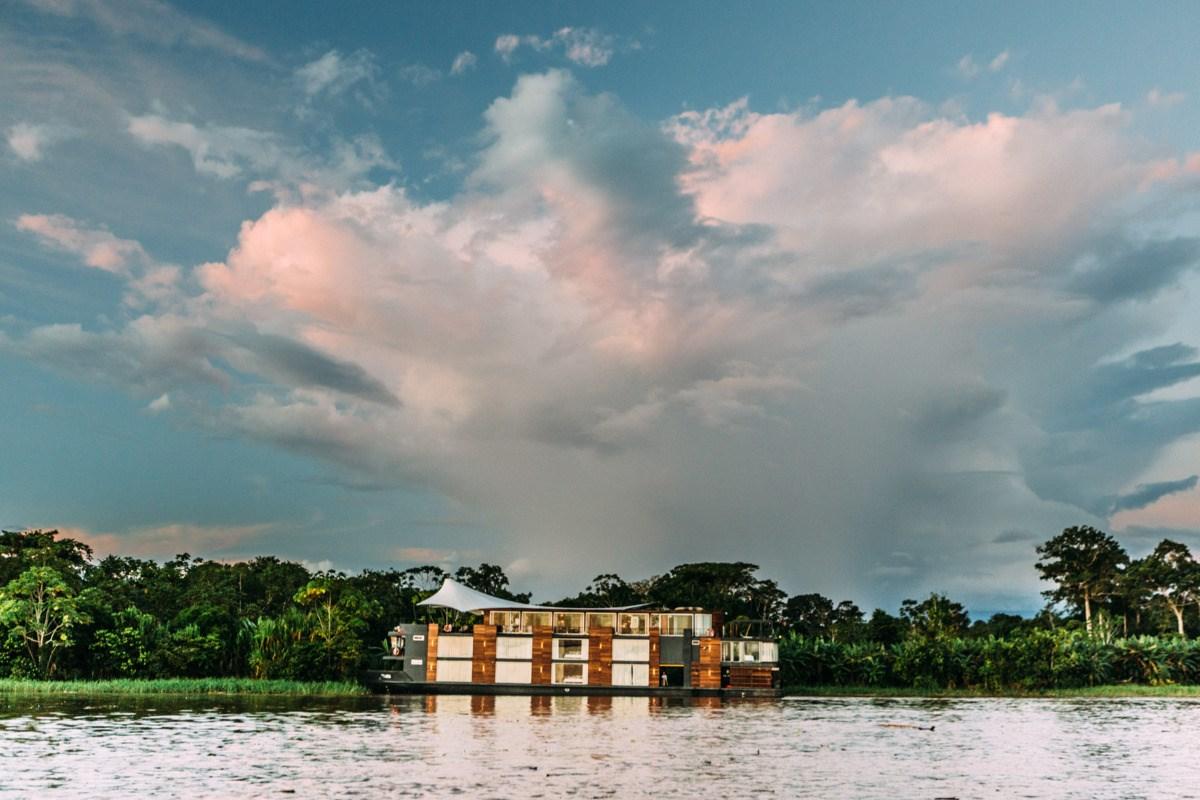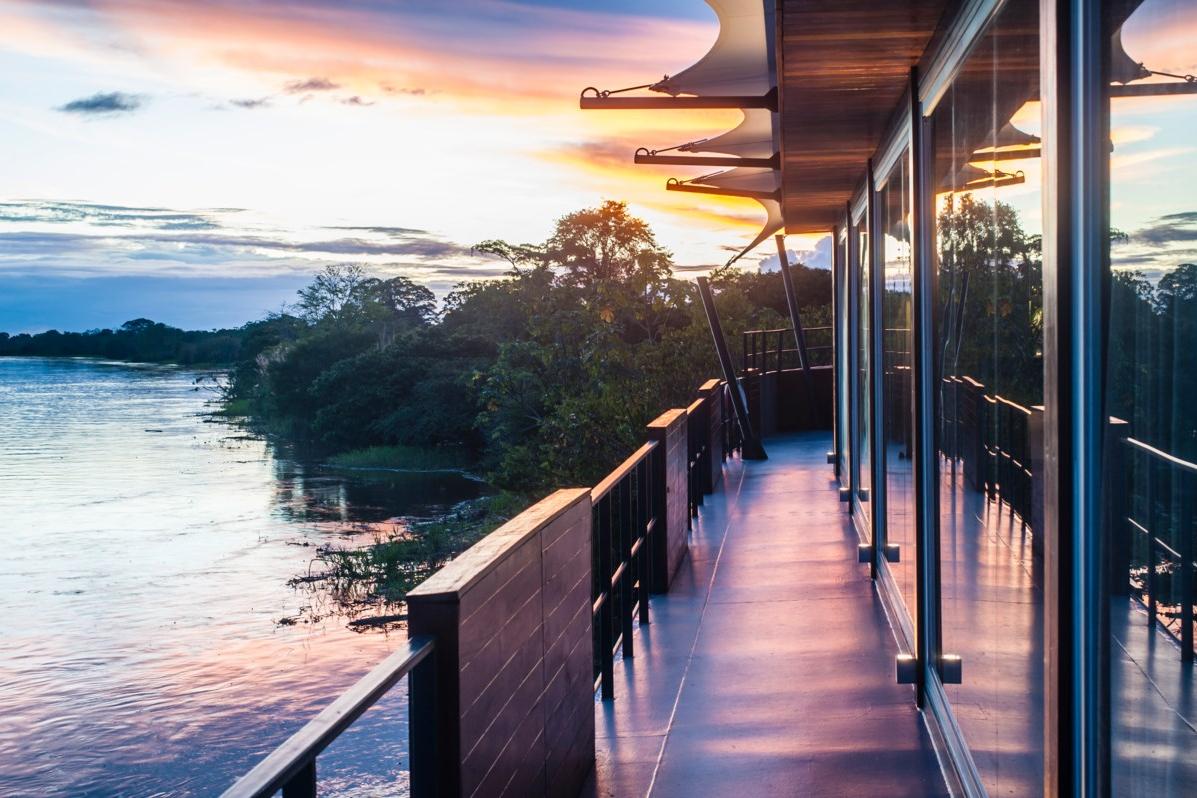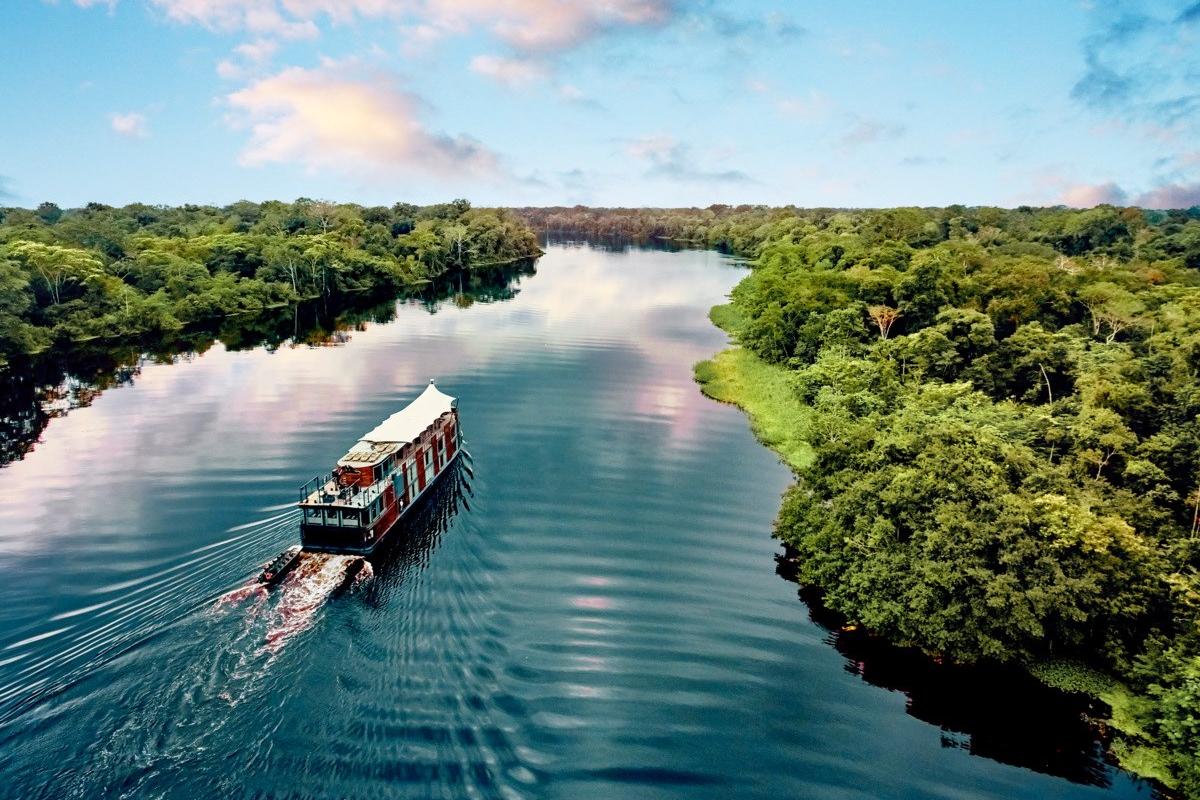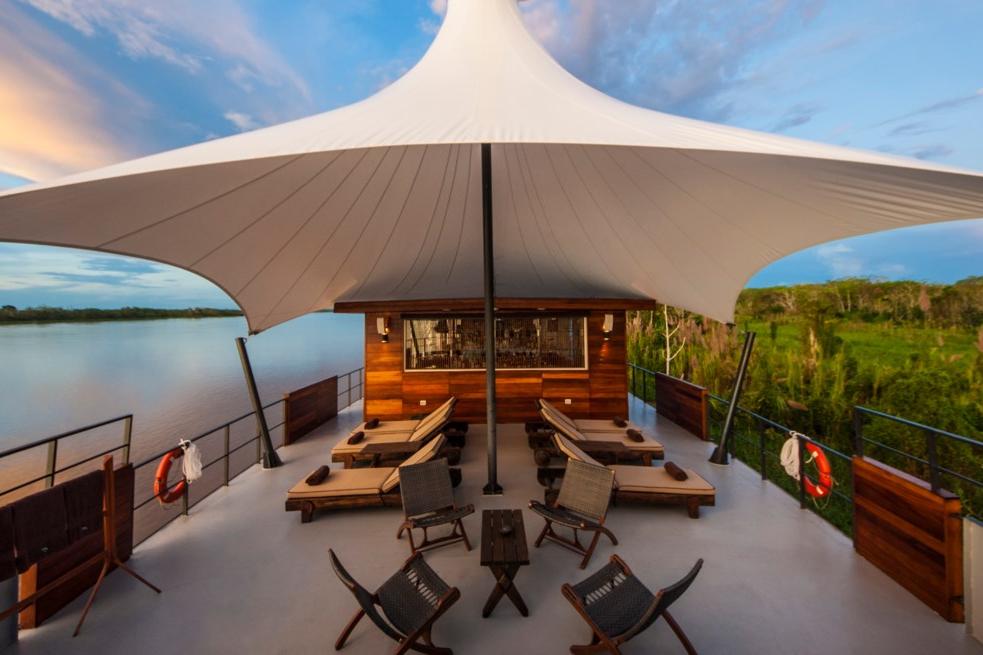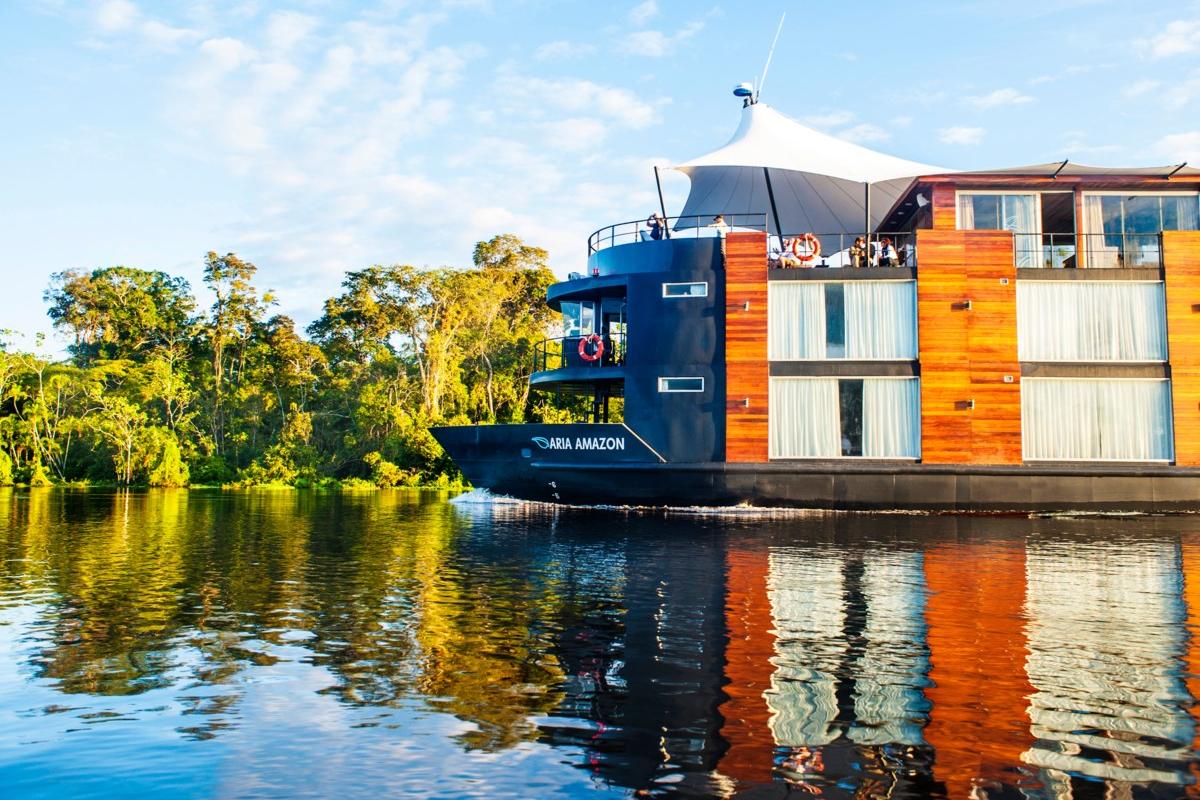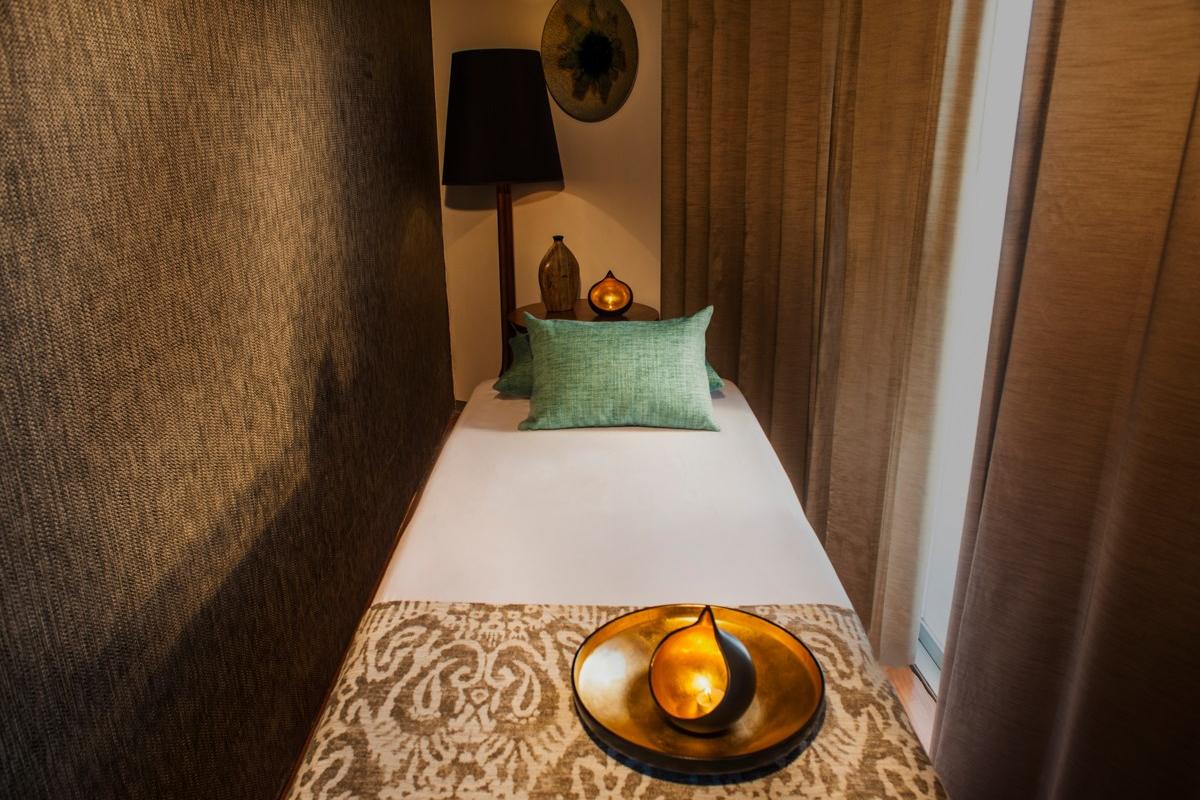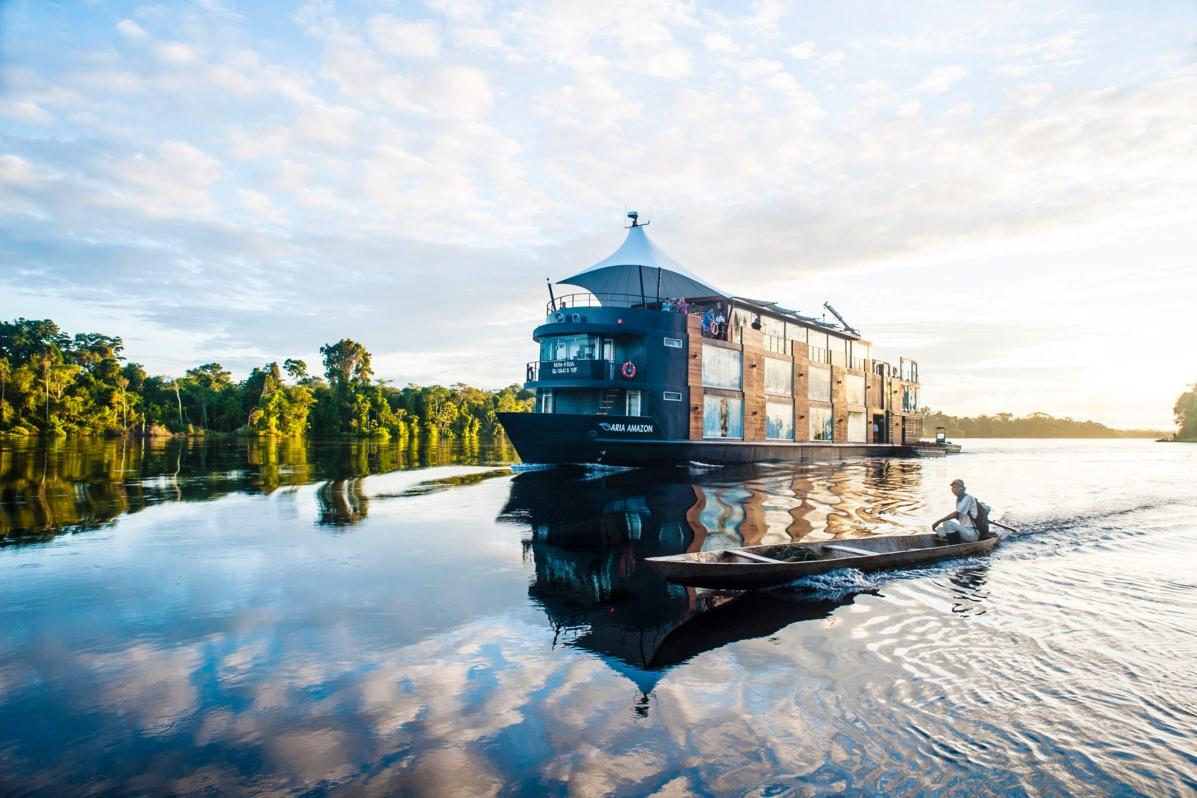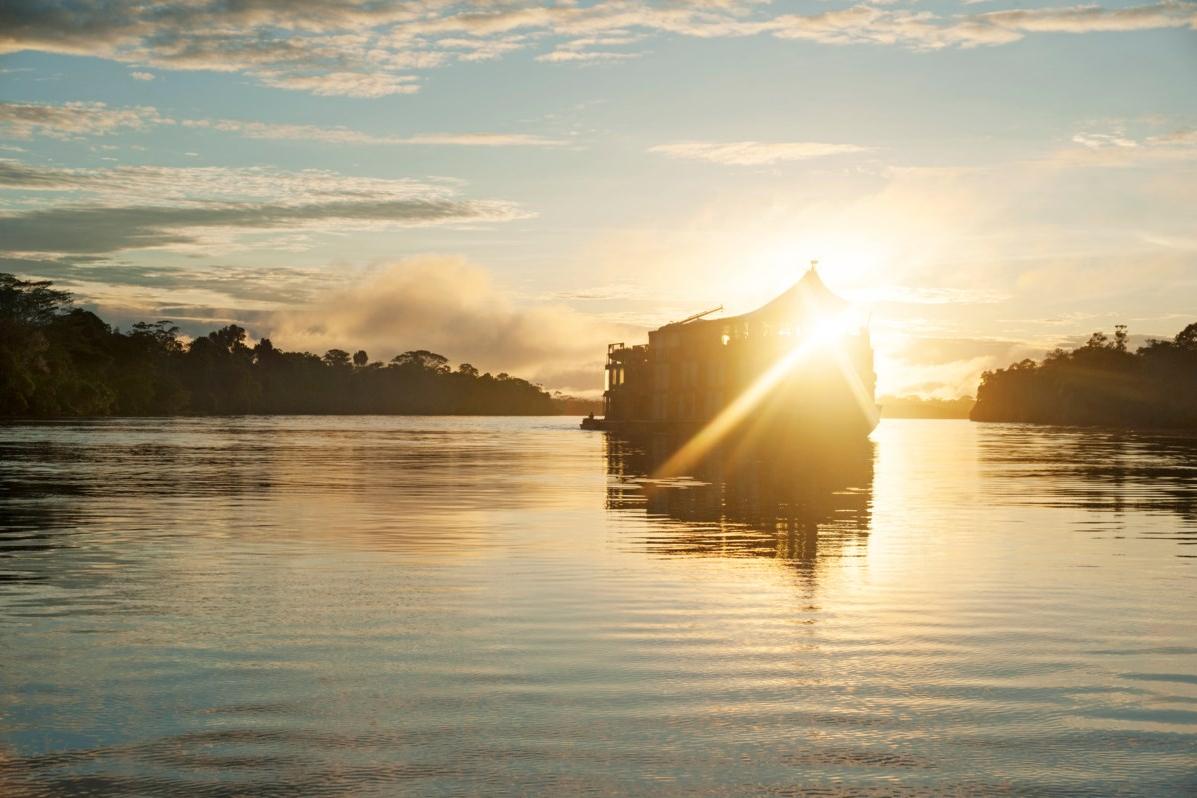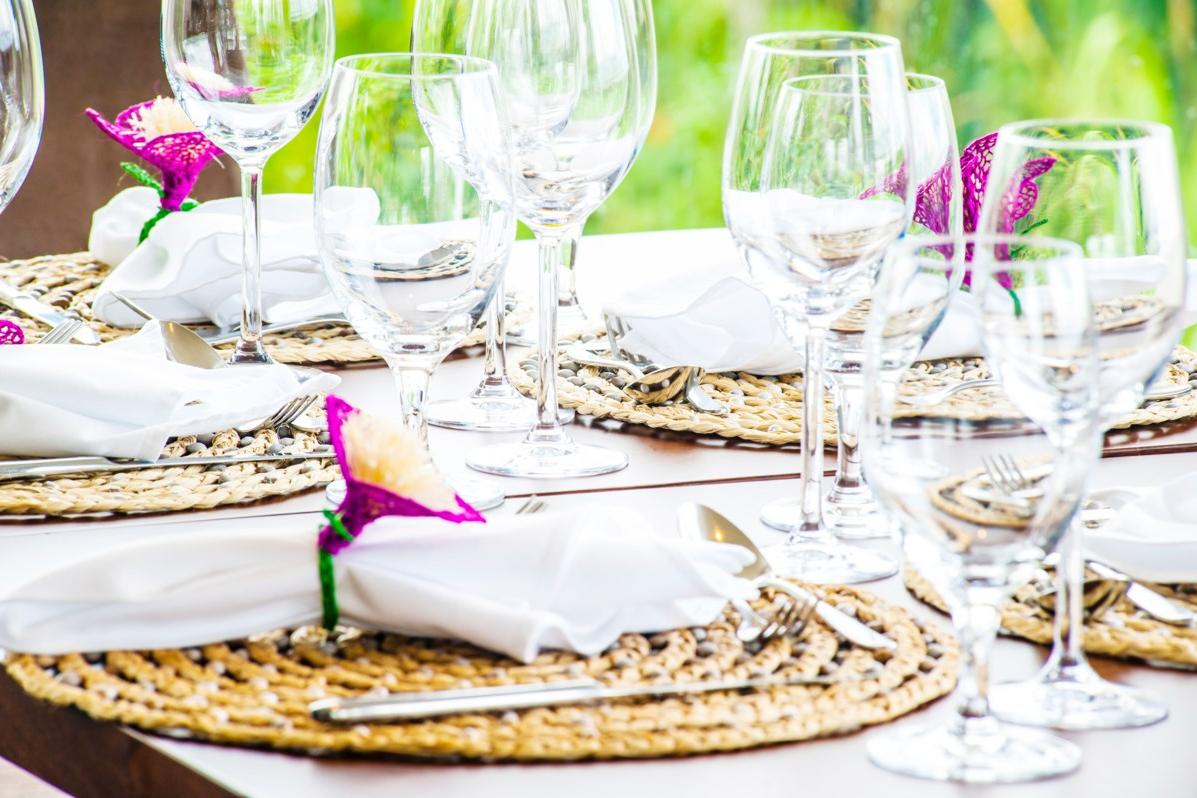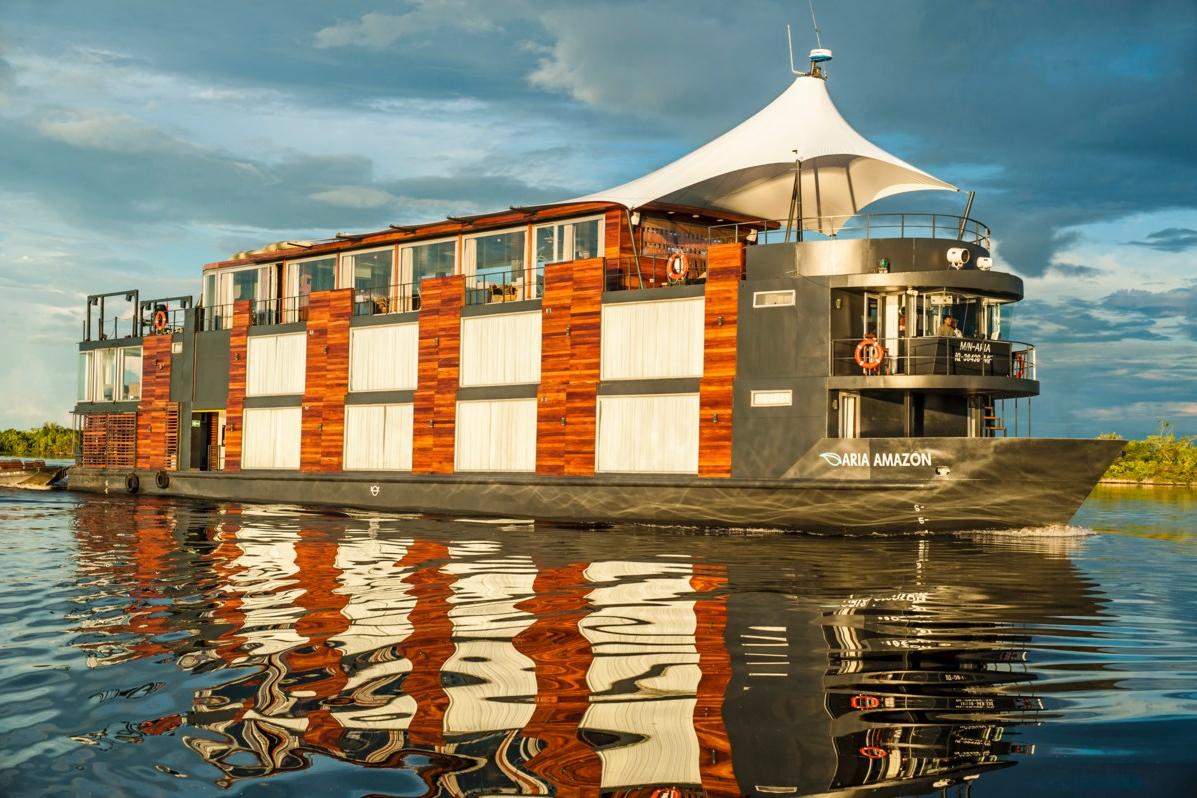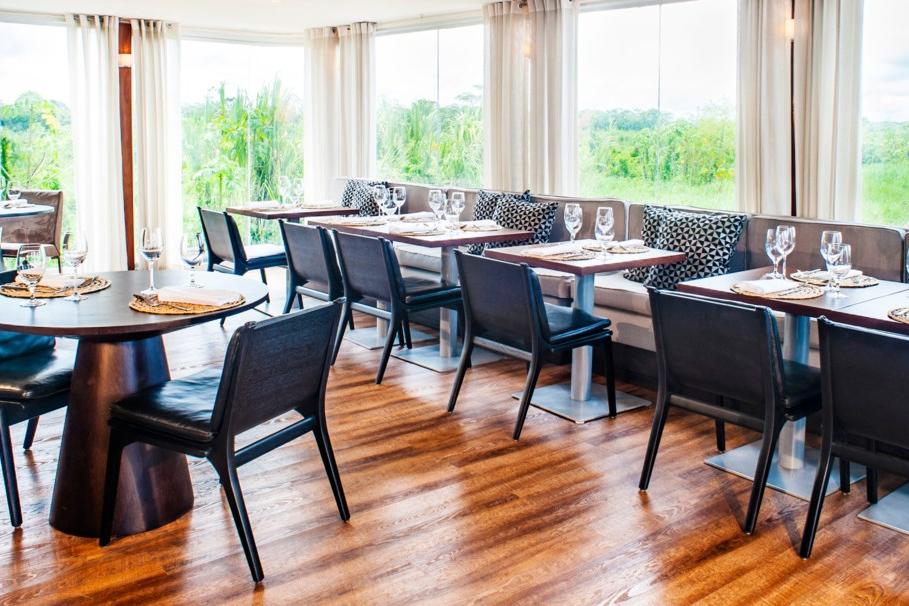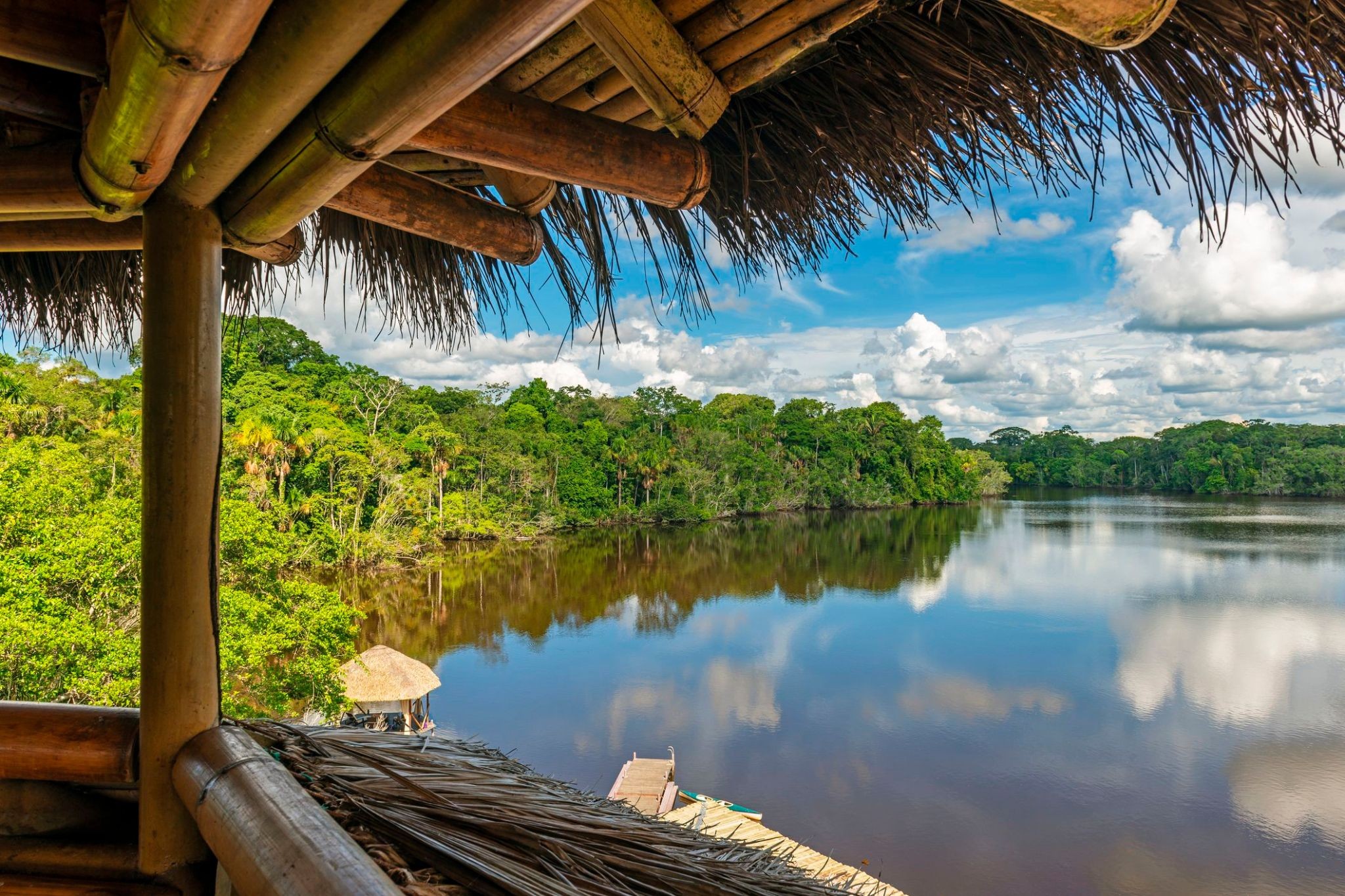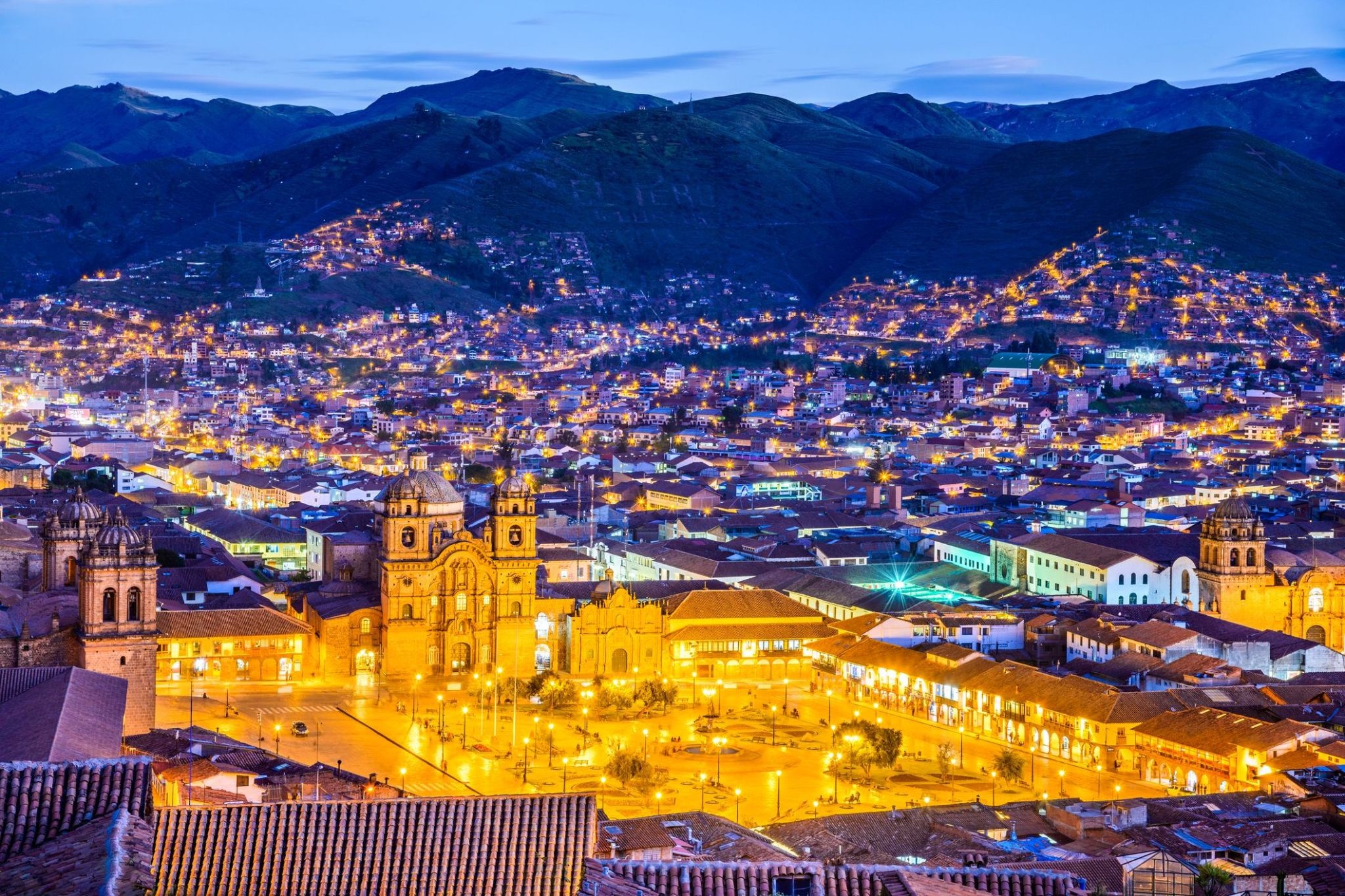Cruise: 30,877,319
Unfortunately this cruise is temporarily unavailable.
Peruvian Amazon & Machu Picchu Exploration (2025)
| Company : Uniworld |
| Ship : Aria Amazon |
| Journey Start : Wed 19 Mar 2025 |
| Journey End : Thu 03 Apr 2025 |
| Count Nights : 15 nights |
Schedule
| Day | Date | Port |
|---|---|---|
| 1 | 19.03 Wed | Lima / Peru |
| 2 | 20.03 Thu | Lima / Peru |
| 3 | 21.03 Fri | Iquitos / Peru |
| 4 | 22.03 Sat | Amazonia – Cruise |
| 5 | 23.03 Sun | Amazonia – Cruise |
| 6 | 24.03 Mon | Nauta (Peru) / Peru |
| 7 | 25.03 Tue | Amazonia – Cruise |
| 8 | 26.03 Wed | Amazonia – Cruise |
| 9 | 27.03 Thu | Amazonia – Cruise |
| 10 | 28.03 Fri | Nauta (Peru) / Peru |
| 11 | 29.03 Sat | Urubamba / Peru |
| 12 | 30.03 Sun | Cusco / Peru |
| 13 | 31.03 Mon | Cusco / Peru |
| 14 | 1.04 Tue | Cusco / Peru |
| 15 | 2.04 Wed | Lima / Peru |
| 16 | 3.04 Thu | Lima / Peru |
-
 Day 1:
Day 1:Lima / Peru
Lima is the capital and the largest city of Peru. It is located in the valleys of the Chillón, Rímac and Lurín rivers, in the central coastal part of the country, overlooking the Pacific Ocean. Together with the seaport of Callao, it forms a contiguous urban area known as the Lima Metropolitan Area. With a population of more than 9 million, Lima is the most populous metropolitan area of Peru and the third-largest city in the Americas (as defined by "city proper"), behind São Paulo and Mexico City.
Lima was founded by Spanish conquistador Francisco Pizarro on January 18, 1535, as Ciudad de los Reyes. It became the capital and most important city in the Viceroyalty of Peru. Following the Peruvian War of Independence, it became the capital of the Republic of Peru. Around one-third of the national population lives in the metropolitan area.
-
 Day 2:
Day 2:Lima / Peru
Lima is the capital and the largest city of Peru. It is located in the valleys of the Chillón, Rímac and Lurín rivers, in the central coastal part of the country, overlooking the Pacific Ocean. Together with the seaport of Callao, it forms a contiguous urban area known as the Lima Metropolitan Area. With a population of more than 9 million, Lima is the most populous metropolitan area of Peru and the third-largest city in the Americas (as defined by "city proper"), behind São Paulo and Mexico City.
Lima was founded by Spanish conquistador Francisco Pizarro on January 18, 1535, as Ciudad de los Reyes. It became the capital and most important city in the Viceroyalty of Peru. Following the Peruvian War of Independence, it became the capital of the Republic of Peru. Around one-third of the national population lives in the metropolitan area.
-
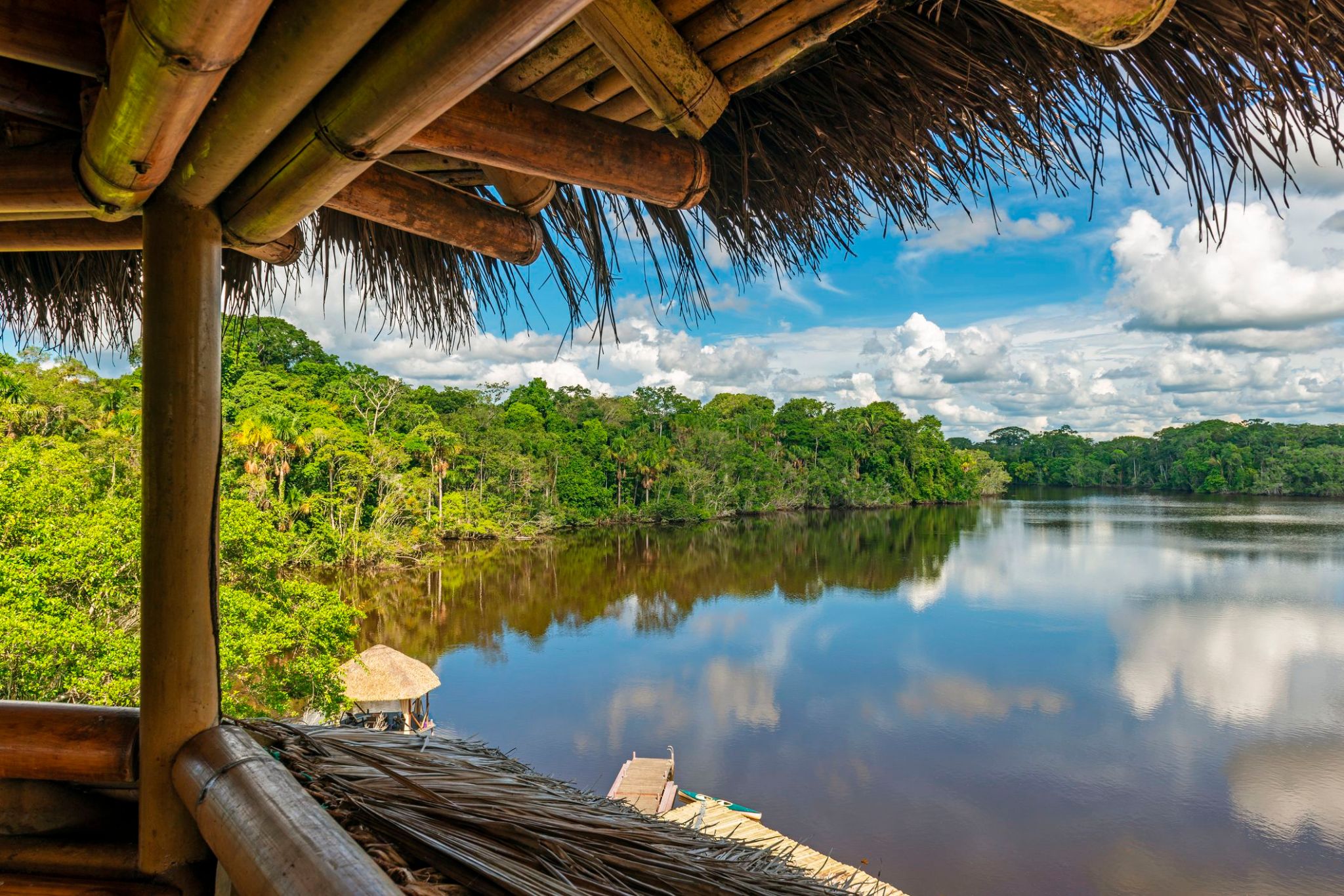 Day 3:
Day 3:Iquitos / Peru
Surrounded by endless jungle and accessible only by air or river, Iquitos is the largest city in the world that cannot be reached by road. Located in the heart of the Peruvian Amazon, it draws travelers with its unique location and atmosphere: ancient traditions, raw natural beauty, and traces of the colonial era blend here. As you stroll along the Malecón Tarapacá promenade, you'll hear Spanish mingling with Indigenous languages, and the local markets will surprise you with exotic fruits and crafts.
Iquitos is the gateway to real adventure: from here, Amazon cruises depart, jungle expeditions begin, and visits to shamanic villages offer deep encounters with biodiversity found nowhere else. The city is also rich in cultural heritage — rubber boom mansions, museums, and vibrant festivals make it not only a natural but also a cultural gem of the region.
-
 Day 4:
Day 4:Amazonia – Cruise
Immersion into the wild and the untamed spirit of the tropics is only possible where the Amazon River flows. This natural giant, the largest river by volume in the world, reveals to travelers scenic landscapes, endless jungles, and astonishing biodiversity—from pink river dolphins to vibrant toucans. Cruising its tributaries becomes an expedition into an untouched world, where every moment is filled with discovery.
The Amazon River and its tributaries span nine South American countries, creating one of the most complex river systems on Earth. For tourists, it's a chance to visit remote villages, learn about indigenous cultures, and hear legends passed down for generations. Whether you choose a cruise, kayaking, or wildlife watching, this journey will remain one of the most thrilling adventures of your life.
-
 Day 5:
Day 5:Amazonia – Cruise
Immersion into the wild and the untamed spirit of the tropics is only possible where the Amazon River flows. This natural giant, the largest river by volume in the world, reveals to travelers scenic landscapes, endless jungles, and astonishing biodiversity—from pink river dolphins to vibrant toucans. Cruising its tributaries becomes an expedition into an untouched world, where every moment is filled with discovery.
The Amazon River and its tributaries span nine South American countries, creating one of the most complex river systems on Earth. For tourists, it's a chance to visit remote villages, learn about indigenous cultures, and hear legends passed down for generations. Whether you choose a cruise, kayaking, or wildlife watching, this journey will remain one of the most thrilling adventures of your life.
-
 Day 6:
Day 6:Nauta (Peru) / Peru
Hidden deep in the Amazon jungle, Nauta (Peru) opens the gateway to one of the most mysterious corners of the planet. This small but colorful settlement on the Marañón River is considered the first city founded in the Loreto region and serves as the starting point for river expeditions into the heart of the Amazon. Its traditional way of life, friendly locals, and relaxed rhythm make it an ideal place to discover Peru’s rural charm.
From here begin the Amazon cruises, and in the surroundings, you can spot pink river dolphins, rare birds, and visit local communities that preserve authentic customs. Nauta is not just a geographic point—it’s a true window into wild nature, where civilization meets untouched forests, and every evening is painted in the warm hues of a sunset over the great river.
-
 Day 7:
Day 7:Amazonia – Cruise
Immersion into the wild and the untamed spirit of the tropics is only possible where the Amazon River flows. This natural giant, the largest river by volume in the world, reveals to travelers scenic landscapes, endless jungles, and astonishing biodiversity—from pink river dolphins to vibrant toucans. Cruising its tributaries becomes an expedition into an untouched world, where every moment is filled with discovery.
The Amazon River and its tributaries span nine South American countries, creating one of the most complex river systems on Earth. For tourists, it's a chance to visit remote villages, learn about indigenous cultures, and hear legends passed down for generations. Whether you choose a cruise, kayaking, or wildlife watching, this journey will remain one of the most thrilling adventures of your life.
-
 Day 8:
Day 8:Amazonia – Cruise
Immersion into the wild and the untamed spirit of the tropics is only possible where the Amazon River flows. This natural giant, the largest river by volume in the world, reveals to travelers scenic landscapes, endless jungles, and astonishing biodiversity—from pink river dolphins to vibrant toucans. Cruising its tributaries becomes an expedition into an untouched world, where every moment is filled with discovery.
The Amazon River and its tributaries span nine South American countries, creating one of the most complex river systems on Earth. For tourists, it's a chance to visit remote villages, learn about indigenous cultures, and hear legends passed down for generations. Whether you choose a cruise, kayaking, or wildlife watching, this journey will remain one of the most thrilling adventures of your life.
-
 Day 9:
Day 9:Amazonia – Cruise
Immersion into the wild and the untamed spirit of the tropics is only possible where the Amazon River flows. This natural giant, the largest river by volume in the world, reveals to travelers scenic landscapes, endless jungles, and astonishing biodiversity—from pink river dolphins to vibrant toucans. Cruising its tributaries becomes an expedition into an untouched world, where every moment is filled with discovery.
The Amazon River and its tributaries span nine South American countries, creating one of the most complex river systems on Earth. For tourists, it's a chance to visit remote villages, learn about indigenous cultures, and hear legends passed down for generations. Whether you choose a cruise, kayaking, or wildlife watching, this journey will remain one of the most thrilling adventures of your life.
-
 Day 10:
Day 10:Nauta (Peru) / Peru
Hidden deep in the Amazon jungle, Nauta (Peru) opens the gateway to one of the most mysterious corners of the planet. This small but colorful settlement on the Marañón River is considered the first city founded in the Loreto region and serves as the starting point for river expeditions into the heart of the Amazon. Its traditional way of life, friendly locals, and relaxed rhythm make it an ideal place to discover Peru’s rural charm.
From here begin the Amazon cruises, and in the surroundings, you can spot pink river dolphins, rare birds, and visit local communities that preserve authentic customs. Nauta is not just a geographic point—it’s a true window into wild nature, where civilization meets untouched forests, and every evening is painted in the warm hues of a sunset over the great river.
-
 Day 11:
Day 11:Urubamba / Peru
-
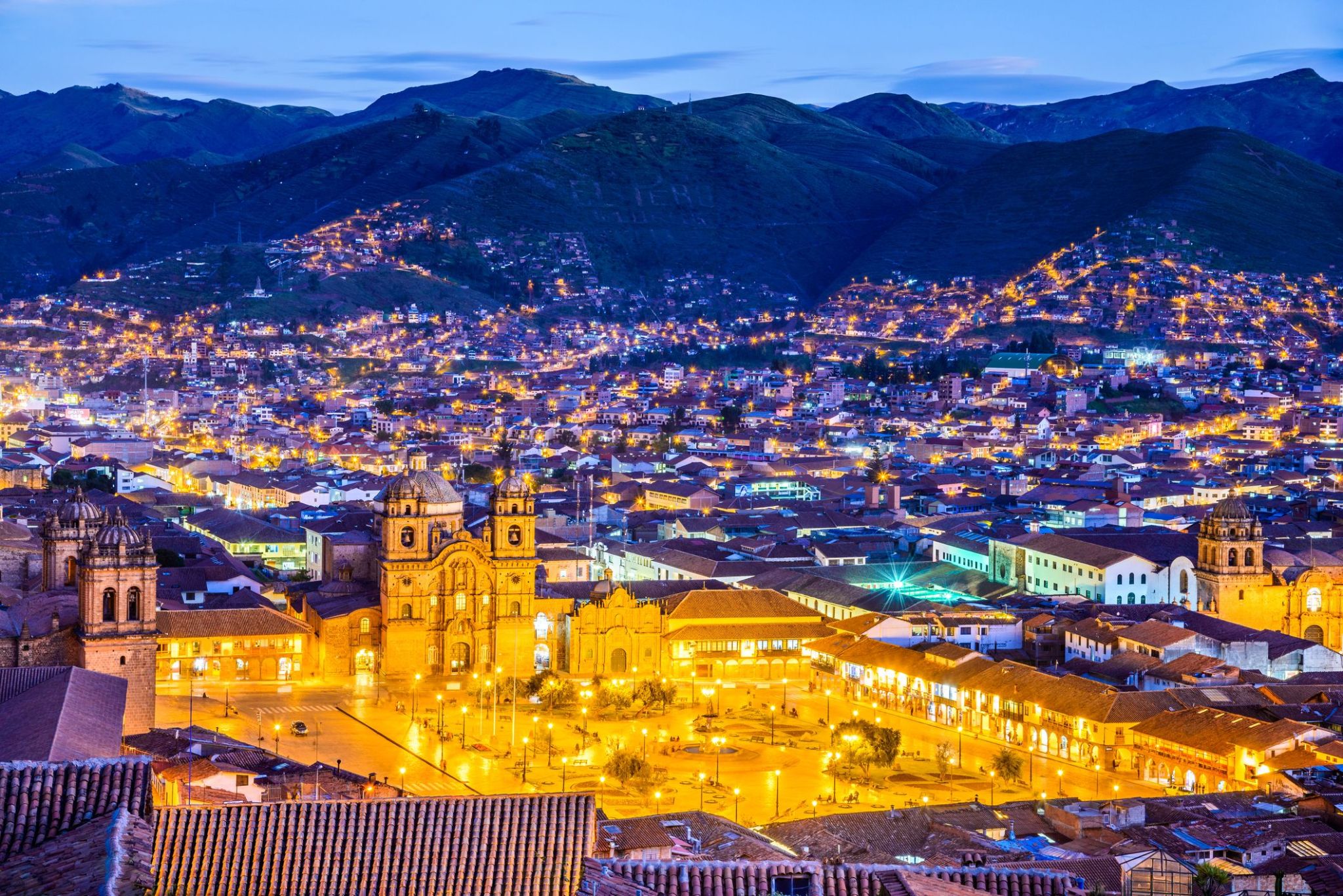 Day 12:
Day 12:Cusco / Peru
Cusco is not just a city; it's the gateway to the world of the ancient Inca civilization and one of the brightest tourist jewels of Peru. As the capital of the Inca Empire, Cusco has preserved a unique blend of colonial architecture and the grandeur of ancient Inca temples. Walking through its winding streets, you can feel the spirit of antiquity in the air, and the breathtaking views of the mountains and valleys leave unforgettable impressions.
The city is the starting point for trips to the Sacred Valley, Machu Picchu, and other ancient Inca sites, attracting thousands of tourists from around the world. Cusco is a place where history, culture, and nature meet, making it a must-visit destination for any traveler eager to explore the legacy of one of the most powerful civilizations in history.
-
 Day 13:
Day 13:Cusco / Peru
Cusco is not just a city; it's the gateway to the world of the ancient Inca civilization and one of the brightest tourist jewels of Peru. As the capital of the Inca Empire, Cusco has preserved a unique blend of colonial architecture and the grandeur of ancient Inca temples. Walking through its winding streets, you can feel the spirit of antiquity in the air, and the breathtaking views of the mountains and valleys leave unforgettable impressions.
The city is the starting point for trips to the Sacred Valley, Machu Picchu, and other ancient Inca sites, attracting thousands of tourists from around the world. Cusco is a place where history, culture, and nature meet, making it a must-visit destination for any traveler eager to explore the legacy of one of the most powerful civilizations in history.
-
 Day 14:
Day 14:Cusco / Peru
Cusco is not just a city; it's the gateway to the world of the ancient Inca civilization and one of the brightest tourist jewels of Peru. As the capital of the Inca Empire, Cusco has preserved a unique blend of colonial architecture and the grandeur of ancient Inca temples. Walking through its winding streets, you can feel the spirit of antiquity in the air, and the breathtaking views of the mountains and valleys leave unforgettable impressions.
The city is the starting point for trips to the Sacred Valley, Machu Picchu, and other ancient Inca sites, attracting thousands of tourists from around the world. Cusco is a place where history, culture, and nature meet, making it a must-visit destination for any traveler eager to explore the legacy of one of the most powerful civilizations in history.
-
 Day 15:
Day 15:Lima / Peru
Lima is the capital and the largest city of Peru. It is located in the valleys of the Chillón, Rímac and Lurín rivers, in the central coastal part of the country, overlooking the Pacific Ocean. Together with the seaport of Callao, it forms a contiguous urban area known as the Lima Metropolitan Area. With a population of more than 9 million, Lima is the most populous metropolitan area of Peru and the third-largest city in the Americas (as defined by "city proper"), behind São Paulo and Mexico City.
Lima was founded by Spanish conquistador Francisco Pizarro on January 18, 1535, as Ciudad de los Reyes. It became the capital and most important city in the Viceroyalty of Peru. Following the Peruvian War of Independence, it became the capital of the Republic of Peru. Around one-third of the national population lives in the metropolitan area.
-
 Day 16:
Day 16:Lima / Peru
Lima is the capital and the largest city of Peru. It is located in the valleys of the Chillón, Rímac and Lurín rivers, in the central coastal part of the country, overlooking the Pacific Ocean. Together with the seaport of Callao, it forms a contiguous urban area known as the Lima Metropolitan Area. With a population of more than 9 million, Lima is the most populous metropolitan area of Peru and the third-largest city in the Americas (as defined by "city proper"), behind São Paulo and Mexico City.
Lima was founded by Spanish conquistador Francisco Pizarro on January 18, 1535, as Ciudad de los Reyes. It became the capital and most important city in the Viceroyalty of Peru. Following the Peruvian War of Independence, it became the capital of the Republic of Peru. Around one-third of the national population lives in the metropolitan area.

